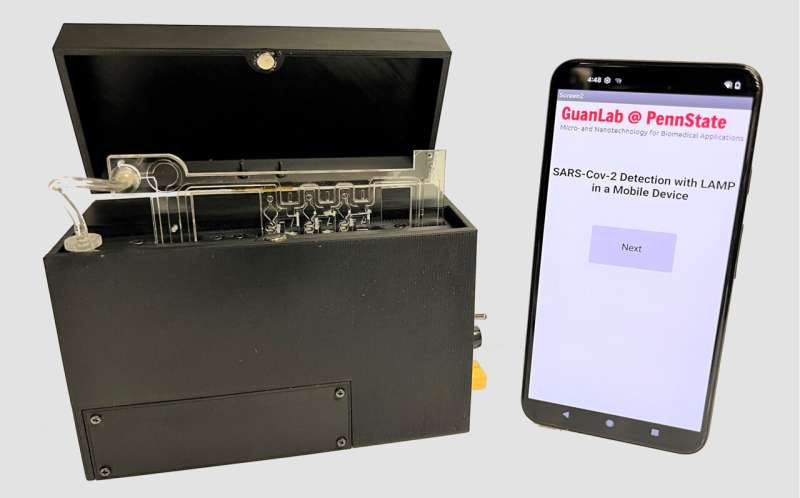

At-home COVID-19 tests have become an easy way to self-diagnose. But current tests have drawbacks, such as the length of time it takes to get an answer, or how accurately the test can identify a positive case. And most of them require the uncomfortable procedure of sticking a swab up one’s nose. Now, researchers reporting in ACS Sensors have developed a SARS-CoV-2 saliva assay and prototype device that combine speed and ease with high sensitivity.
The two main options for at-home COVID-19 testing today are rapid antigen tests and those based on reverse transcription polymerase chain reaction (RT-PCR). Rapid antigen testing delivers a result directly to the user in about 15 minutes, but it’s not very sensitive and can provide a false-negative signal, meaning someone could unknowingly infect others. Though RT-PCR is known as the “gold-standard” assay because of its high sensitivity and specificity for SARS-CoV-2, it requires the sample to be sent away to a lab and be analyzed by specialized personnel. The analysis itself can take up to an hour, but the total time from swab to answer can take days. Plus, both methods require the uncomfortable process of swabbing the back of your nose.
Non-invasive saliva-based tests exist, but they also rely on the slow and specialized RT-PCR approach. A similar method called reverse transcription loop-mediated isothermal amplification (RT-LAMP) can also detect viral SARS-CoV-2 RNA at a level of specificity and sensitivity consistent with RT-PCR, but it’s quicker, cheaper and easier to use. Therefore, Weihua Guan and colleagues wanted to see if they could use RT-LAMP to create a fast and sensitive COVID-19 test that only requires a saliva sample; a palm-sized, portable device; and a smartphone.
Source: Read Full Article